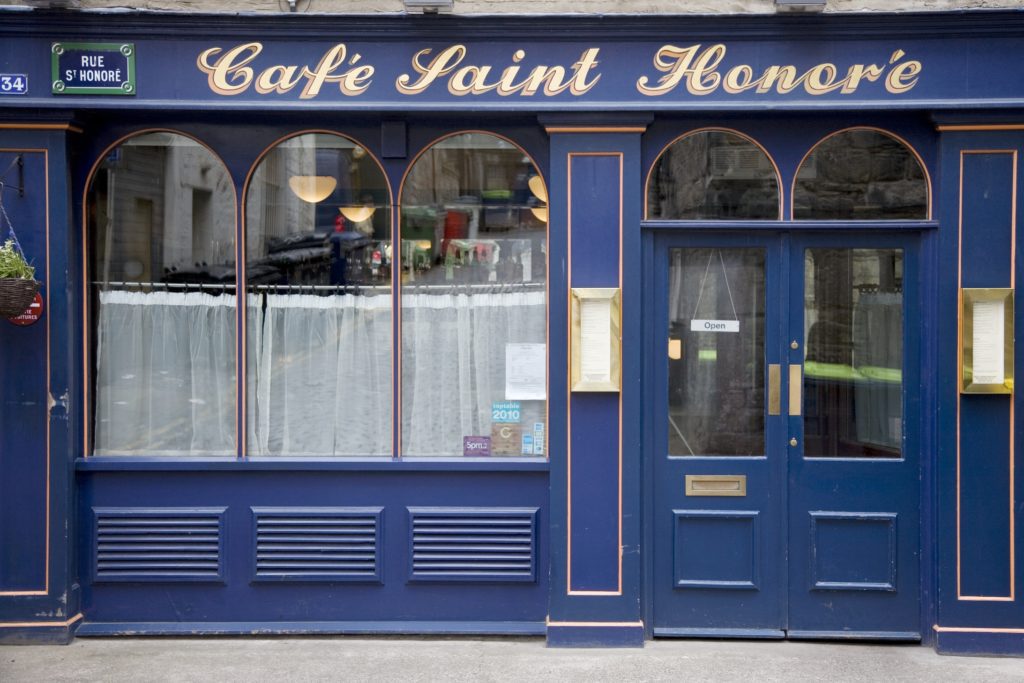This Sunday is the day where families traditionally gather together to prepare the Christmas pudding in advance of the coming festive season.
In the past silver sixpences were added to the mix, and if you found it in your portion you could make a wish. As we head towards Stir-up Sunday, I thought it was time to chat to Neil Forbes, chef director at Cafe St Honorė, about his Christmas pudding recipe.
He tells us that growing up, “there was always something like a Christmas pudding or a clootie dumpling being made at this time of year. I can recall things sloshing around in boiling water, or being dusted with flour to be used as the cloot for the clootie dumpling, or being warmed by the fire to get that crust.”
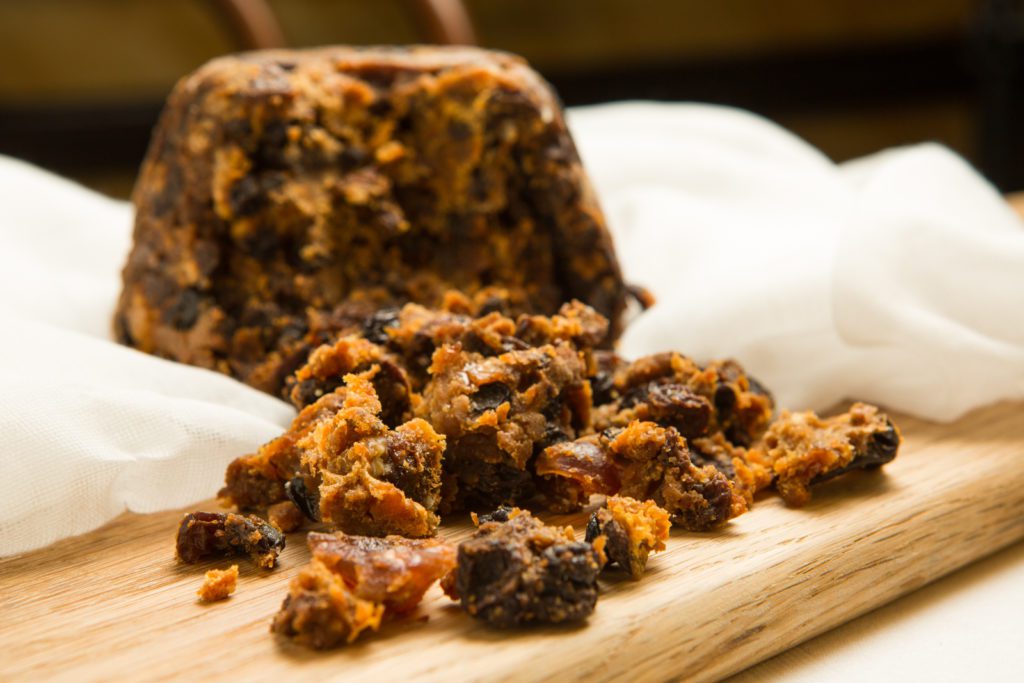
Christmas puddings can be quite dense, dark and heavy, he said, “you look at it and feel full, but nowadays Cafe St Honorė's Christmas puddings are a lot lighter, it is a hybrid cross between a steamed sponge and a clootie dumpling.”
Although there are lots of flavours going on in there; “it is very popular and we sell an awful lot of it.”
His recipe is inspired by one that was made at Kinnaird House when he worked there; “John Webber showed me how to make this pudding and it is delicious. Our one is a combination of his recipe and my childhood memories which have been tweaked.”
Neil is a big champion of farmers’ markets and Scottish produce, and during the pandemic he decided to set up his own stall at Edinburgh’s Farmers’ Market.
He explains, “It has been a bit of a bumpy ride over the last couple of years. I woke up in the middle of the night and thought what are we going to do to get through this? How are we going to get some form of income?”
The solution was to contact the market committee who offered him a pitch. He said, “It has been nice to step into that world.”
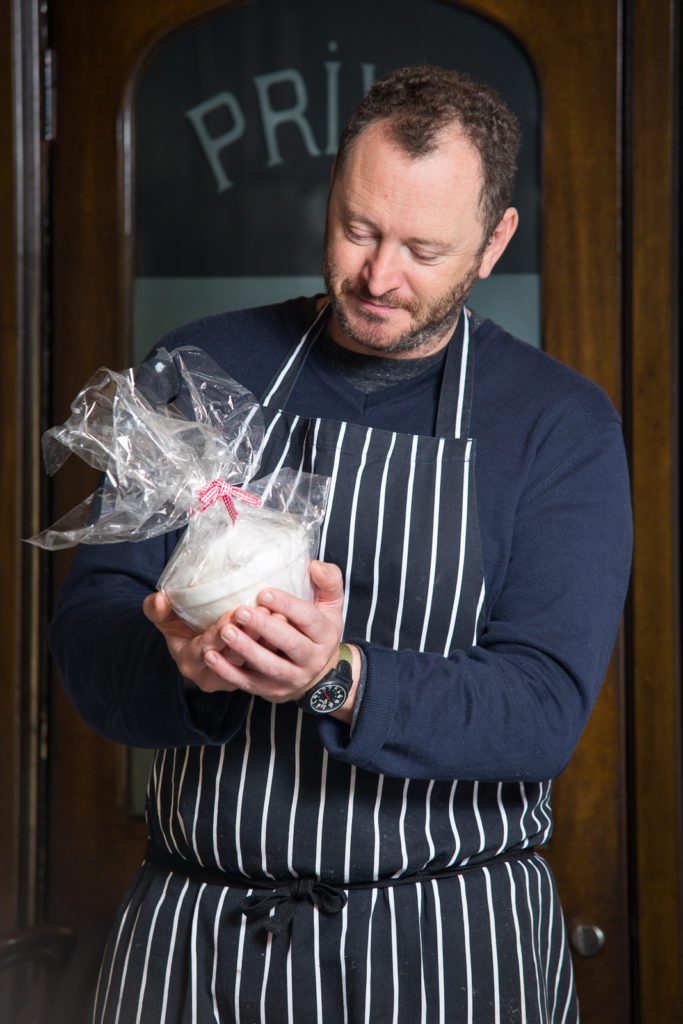
So every Saturday since, Neil and his wife Sarah (aka Mrs Chef), have been getting up very early.
He tells us, “The alarm goes off too early at 5:45am. I get up and cut rosemary in our garden to garnish the stall, quickly make coffee and then we head to the restaurant for 7:15am to sling the produce in the back of the car and we have our stall set up ready for 8:45am.”
Their first market was a baptism of fire: “I remember thinking ‘what the hell do we do?’ I never had a shop before lockdown, so I thought just be nice to everyone and pretend that they are people who are coming into the restaurant.”
As they approach their market stall’s first anniversary, he reveals his affection for working on it. “I love it, I like shouting things like, ‘one bridie for £4.50, or 2 for £10’. You can have fun with people, sometimes we are all too serious about things.”
The big sellers are Scotch eggs, and vegetarian and meaty bridies; “we make our own pastry and our own fillings from Richard Briggs Native Shetland Lamb, Hugh Grierson organic beef, Pelham Farm’s chorizo and Selina Cairns’ goats cheese with potato and onion are very popular.”
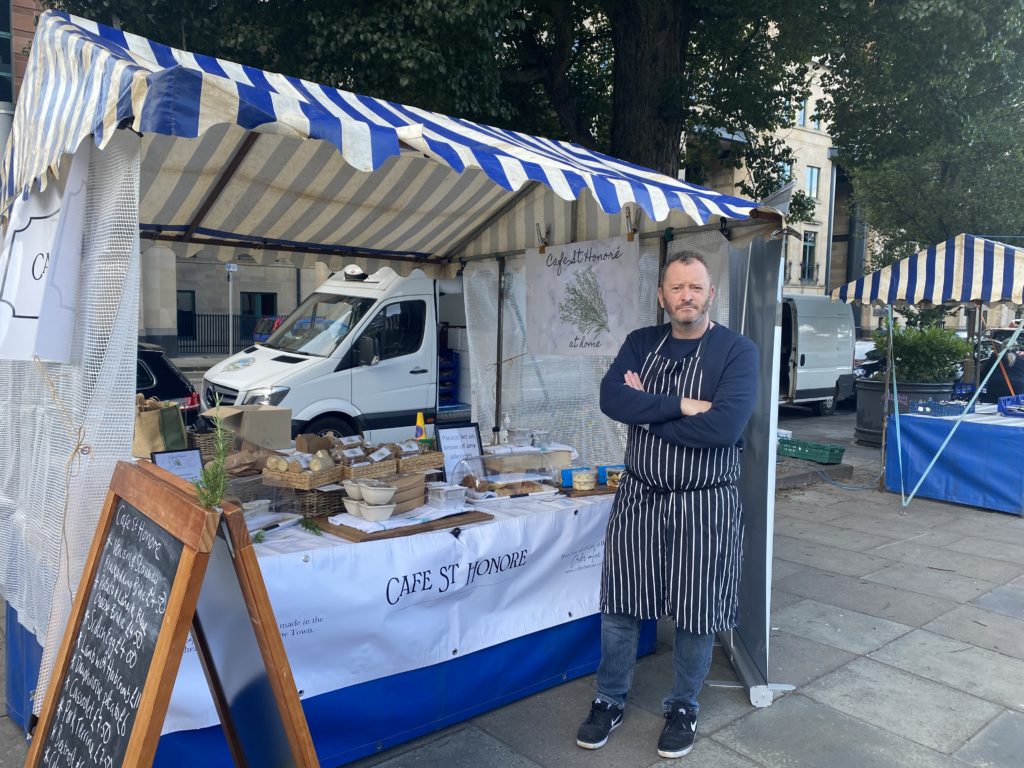
They also sell oatcakes; which he said, “my goodness we could open up an shop just selling them.” They now feel fully accepted into the family of stallholders, which Neil explains is run by a committee, so if they want to sell anything new it has to be cleared by them first.
Neil feels he has learned a huge amount, including the need for clear labelling, “it is so important.” They also use environmentally friendly packaging for all their at home meals and the market stall goods because it fits with their ethos although, “it costs a bit more to do.”
Neil is is glad they took the plunge, “it’s worth its weight in gold and I can’t see us ever wanting to stop. I think it is a good thing to be part of this community, it’s a good PR tool for the restaurant and we can promote other things, like at home meals and the camaraderie between the stall holders has been fantastic.”
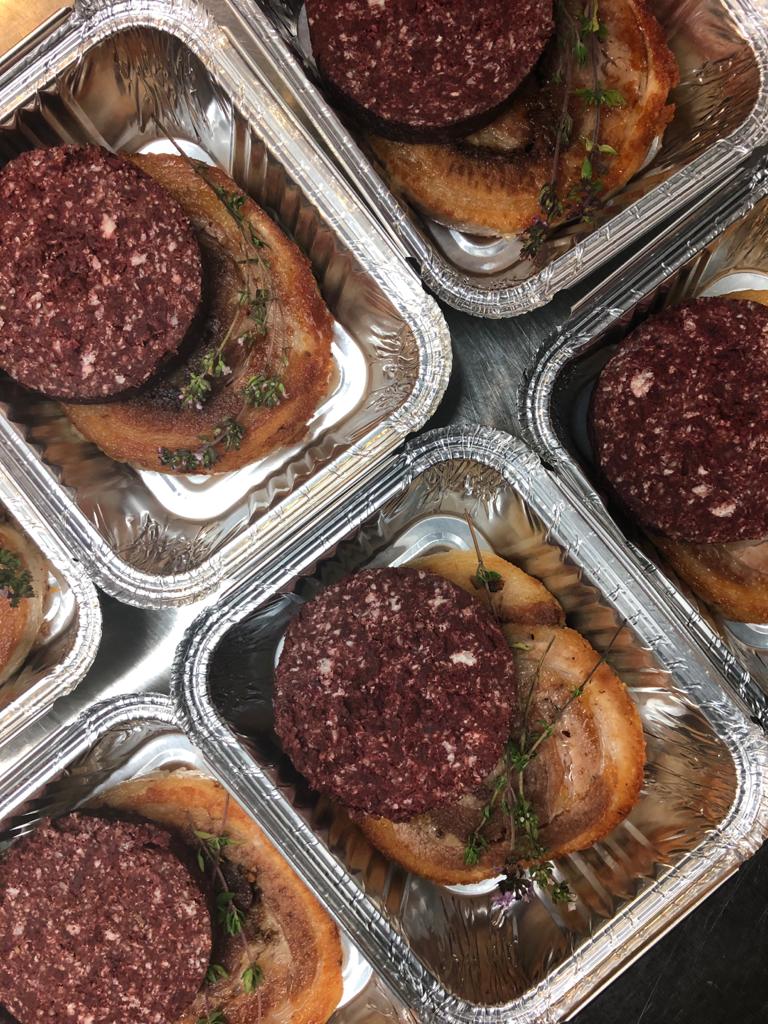
He claims they have the best stall view on the planet, looking up at Edinburgh Castle, but they have faced all types of weather, including when it was so cold their anti-bacterial spray froze.
He said, “it was ridiculous we thought what the bloody hell are we doing here?” The restaurant regulars have supported them and they have made new friends, so they feel the early starts have all been worthwhile. He adds, “We have made a few quid and it has helped us survive.”
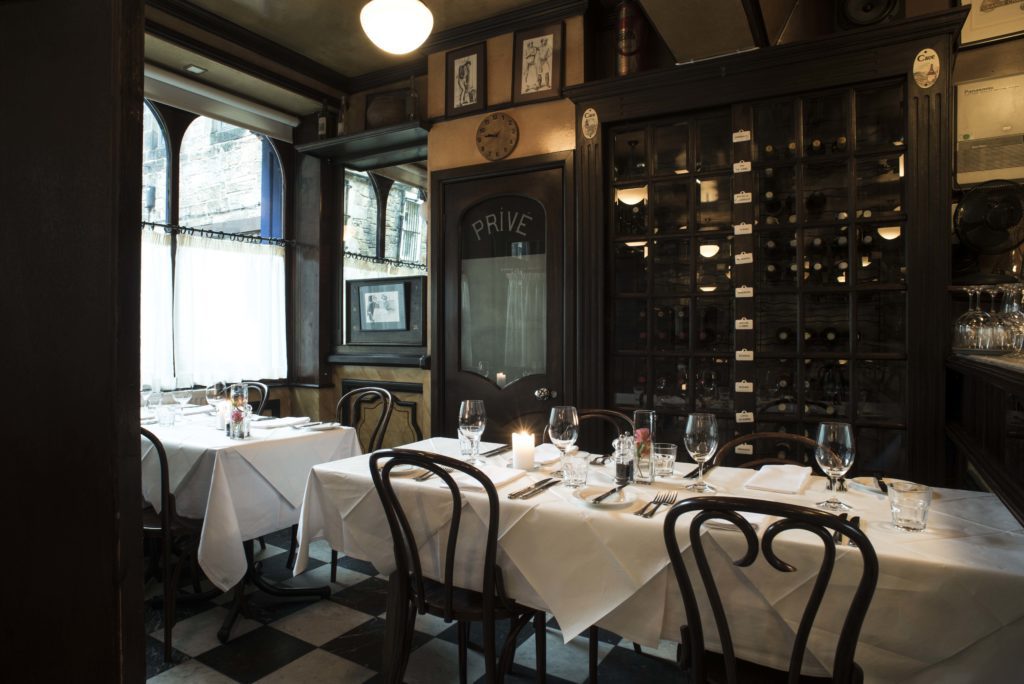
During lockdown when Cafe St Honorė closed, Neil opened a store and started their at home service, explaining, “I couldn’t sit on my backside doing nothing. If I know there are things to be done I will make it happen.”
Nevertheless he admits to facing some dark times; “I remember standing in the bar with the staff that were working, watching Boris’s speech with him saying: we are not asking, we are telling you, to close your restaurants. That broke my heart. The uncertainty of not knowing what is going to happen, are we ever going to afford to open the restaurant? Or were we going to lose our house?”
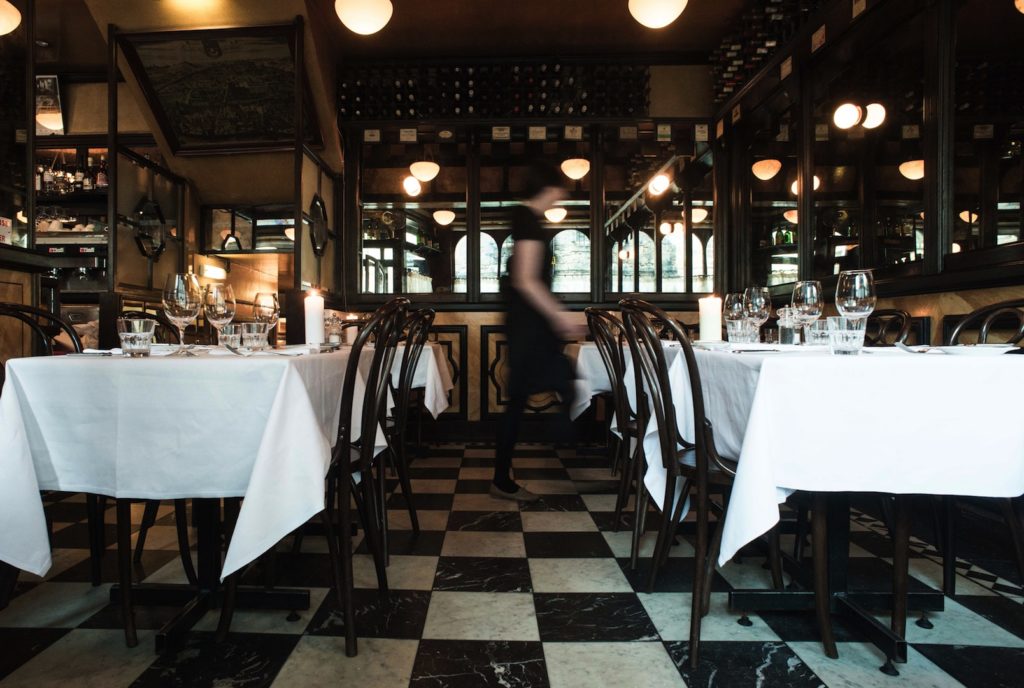
He explains that it really affected him. “I had the responsibility of looking after others, it was horrible but you pick yourself up and get on with it.”
Fast forward to today, and Neil is more optimistic, “We are back in the kitchen full-time and everyone gets an extra day off a week, so life is pretty good and we are still selling at the market stall and doing our at home meals.”
Now he’s getting into the festive spirit, “It is the time of year when you can be extravagant and decadent, we have all been through the wars, so let’s allow ourselves to have that extra dollop of cream, or those extra pigs in blankets. We should give ourselves an extra pat on the back, say well done, ho ho ho, let’s crack on and get on with it.”
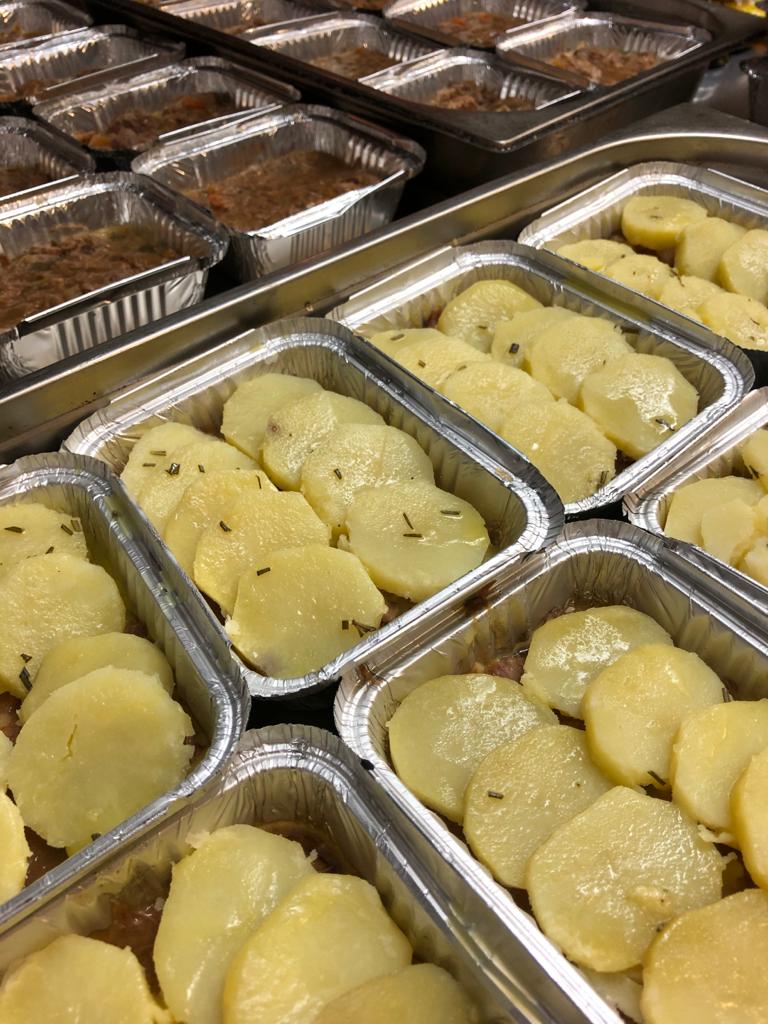
So on the market stall in the coming weeks you will find Cafe St Honorė Chrimbo pudding, which is presented in a ceramic bowl wrapped up with bows. “I didn't want to do this by halves,” he said, “I wanted something that can be reused, it is a really lovely gift. And it is delicious.”
There is a lot going on in terms of flavours including; Bramley apples from a tree in his garden and grated organic carrots, “it adds another layer to the taste. The big debate is what to have with it; custard, pouring cream, ice cream or brandy butter.”
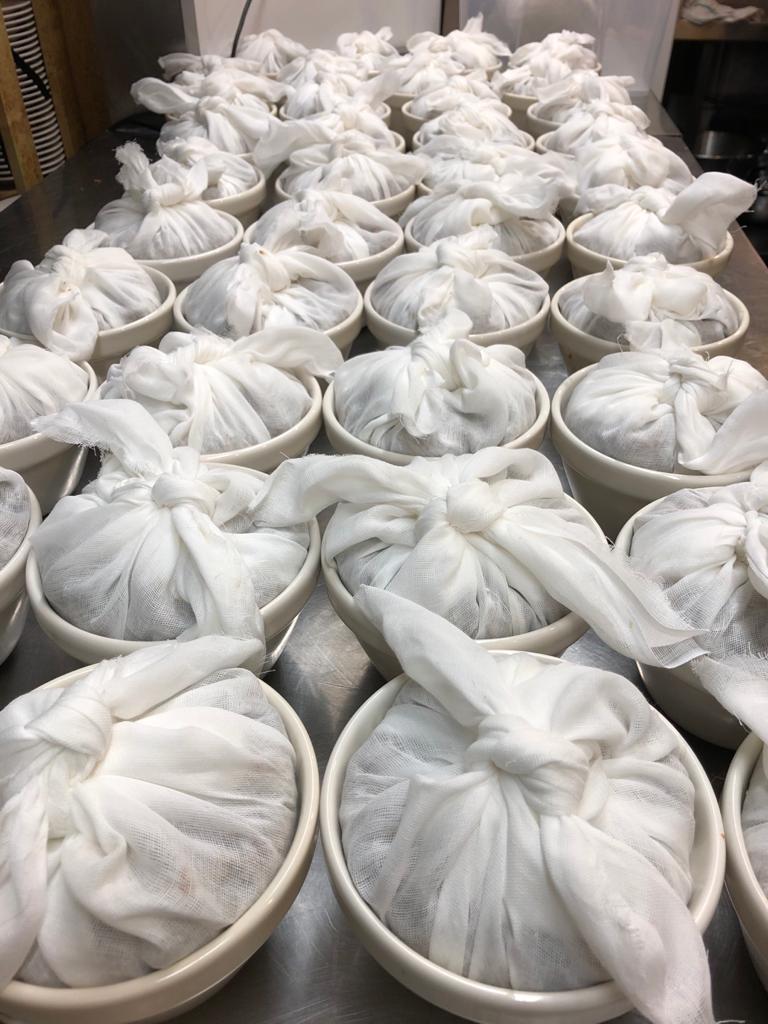
He said, “It may be dark and wintery, but historically you’d pickle, cure or smoke to preserve supplies for the long cold months ahead. You’d bring in the crops, and you would kill a pig and have ham or pork hung above the peat fire. So there is a bit of that we still do subconsciously.”
The festive market stall will feature the usual bridies and Scotch eggs and there are a few ready meals to tempt the taste buds plus, a decadent chocolate fondant dessert.
Neil explained, “You can take it home and cook it in your oven very easily. It is the same as our most popular restaurant pudding.”
I ask what Christmas Day looks like in the Forbes household? “We close the restaurant on Christmas Eve day until Boxing Day, and we have always done that to ensure everyone has a good Christmas off.”
After many years working on Christmas Day, he said, “I don’t believe anyone should be working then, it’s all very Dickensian.”
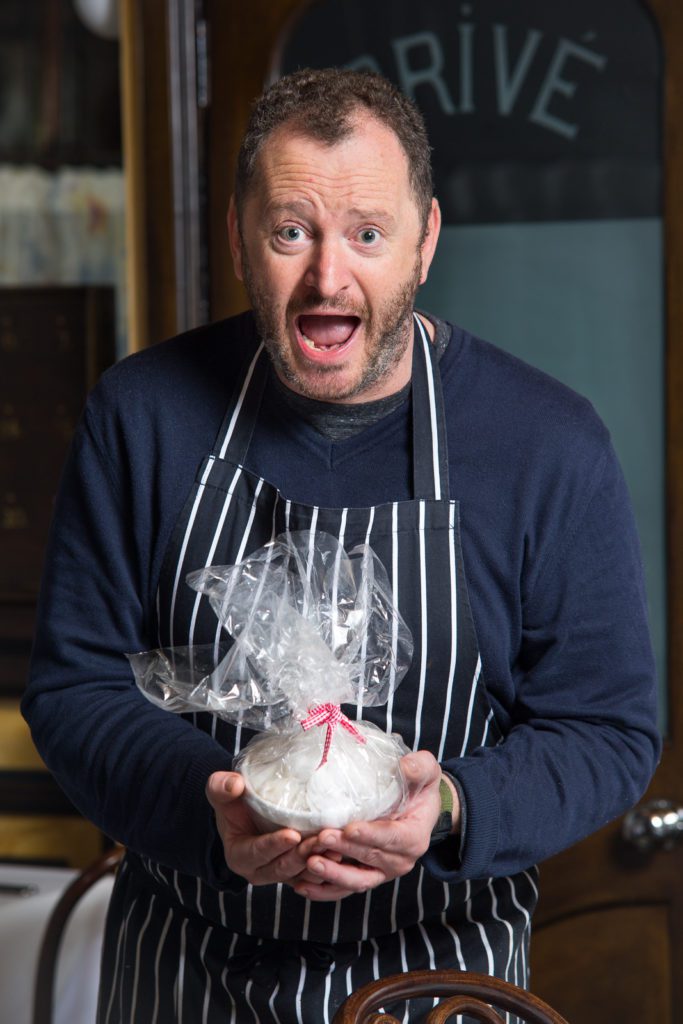
So he anticipates being at home with his family, adding, “we’ll be celebrating and tucking into some nice food and watching some rubbish on TV. Everyone just sits around and gives each other a giant food hug, just being together to appreciate each other with food is so important.”
Neil feels it is vitally important to acknowledge you are this one cohesive unit, “we bolt the doors and say we just want to be left alone, thank you very much, and of course Christmas pudding will be served.”
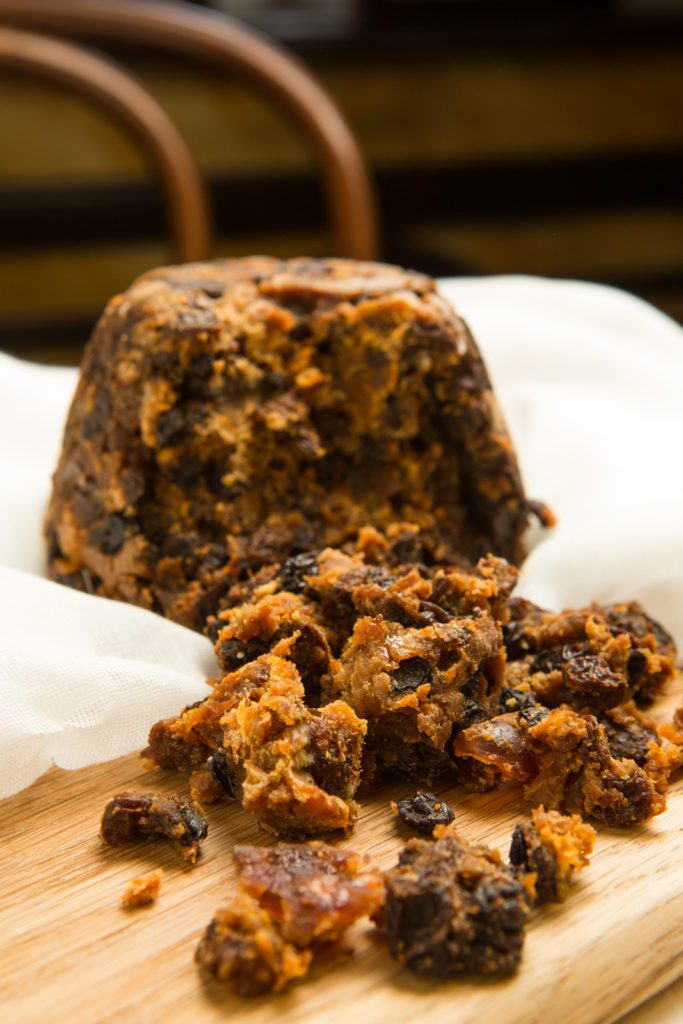
He believes flames are not essential for pudding enjoyment, “it is all very good for show but there is a threat of burning the fruit. There is nothing worse than a burnt raisin and trust me there is enough alcohol in the pudding that you don’t need any more.”
So what’s on Neil’s festive wish list, apart from a Porsche 911? He has modest requirements, “just happiness, being with family, having a nice glass of wine sat around the table with nice food is all I wish for Christmas.”
